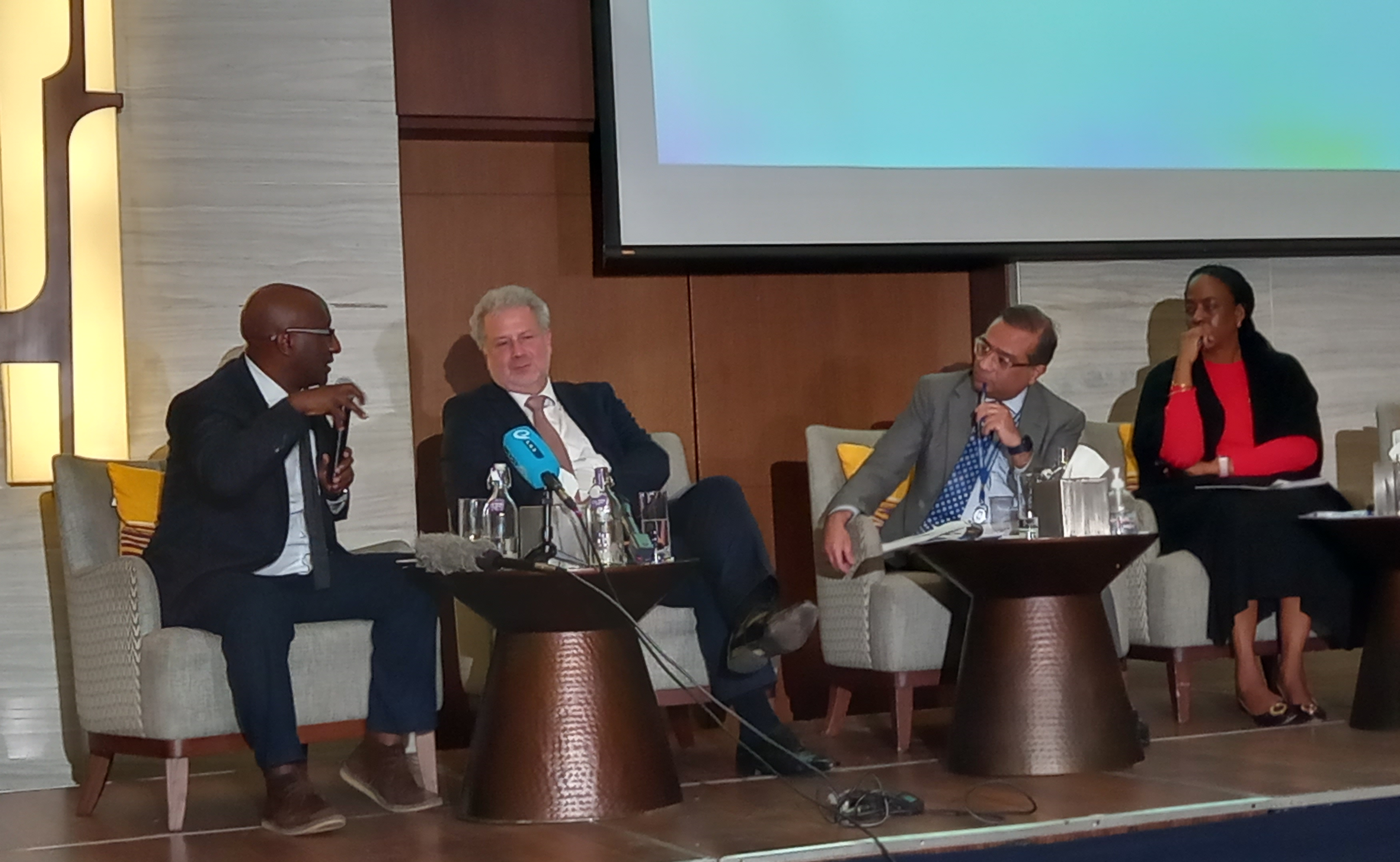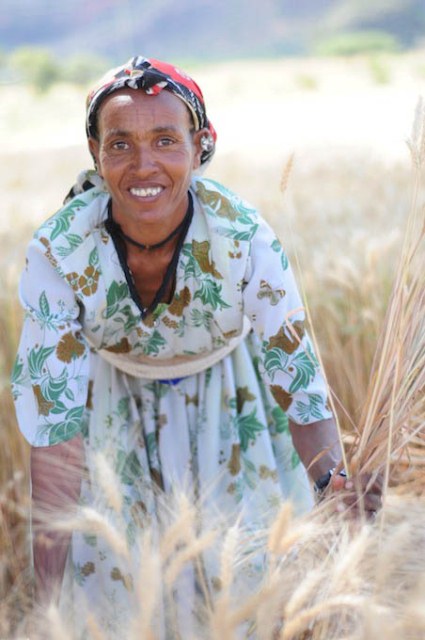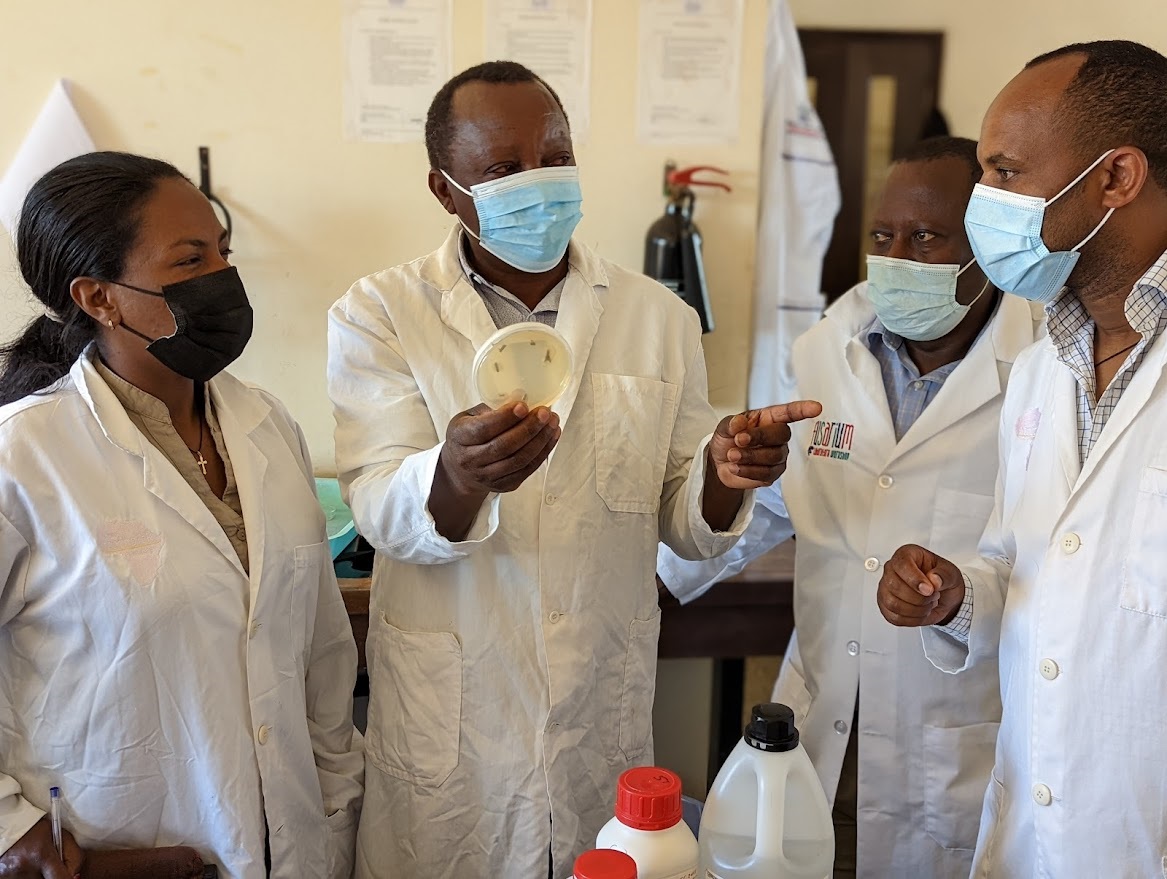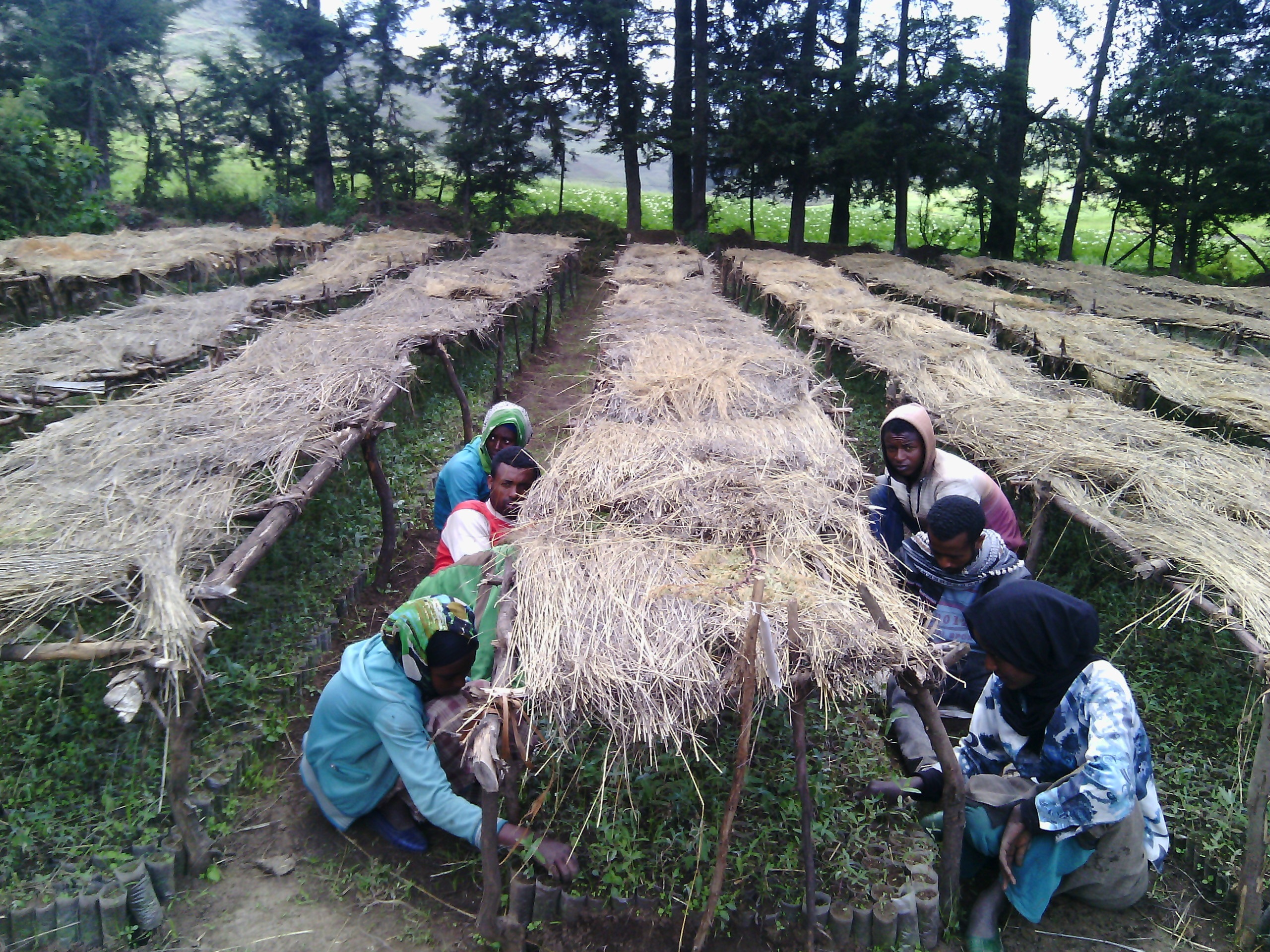Air pollution: An economic, health and social burden on Ethiopia
Making the investment case for clean air
June 28, 2024

Sheger Park Friendship Square is a green space located in the middle of the capital city.
Living with Air Pollution in Ethiopia: Their Experience
Jodahi Bezabih is a vibrant climate influencer who has been part of the environmental movement in Ethiopia since a young age. Jodahi is the Deputy Director of the Enfluencer Network Community, which seeks to create awareness and provide a platform for various perspectives on environmental protection.
As a passionate advocate for climate action, he is deeply concerned about air pollution. He believes this critical global issue has not had the level of attention and emphasis it requires considering its significant impact on people's lives.

"As a young person living in an urban area, I have become accustomed to one of the silent killers of our time: Air Pollution.” said Jodahi, explaining, “I have seen an increased risk of asthma and respiratory problems among my peers, friends, and family members, and I speculate that air pollution is the culprit. That's why I'm always excited to travel outside the city to breathe fresh air. Shockingly, this issue is not being discussed on the main stages as much as it should be.”
Milha Desta is a cyclist and a cofounder of Anbessa Bike Ride, and she shares Jodahi’s concern. “It has been ten years since I started cycling. I am usually exposed to outdoor air pollution as I cycle daily to the office, and I can feel the difference in the air quality when it is a good or a bad day. Cycling early in the morning, or on Sunday, when there is less traffic, is much easier and enjoyable."

Reflecting on how environmental changes pose a health threat, Milha sadly notes, "I have noticed the changes in the environment over time. Some years back, I did not need to wear a mask but now I must, especially when I cycle during peak hours or after 5 pm. I usually cough when I get home or to the office on the days, I don’t wear a mask, and this is an alarming health risk for me and those who are cycling”.
Ethiopia’s Air Pollution Challenge
According to the latest findings in the investment business case on air pollution in the country, millions of Ethiopians share the experiences and stories of Jadahi and Milha. They are struggling with the adverse effects of declining air quality, which causes significant health, environmental, and economic challenges.
In Ethiopia, ambient air pollution (AAP) and household air pollution (HAP) are significant public health and economic concerns impacting millions of people.
The investment business case findings were presented at a stakeholder engagement event held in Addis Ababa on 26 June 2025 and co-organised by the Environmental Protection Authority, UNDP and the European Union Commission.
Findings illustrated the devastating toll of air pollution on economic, environmental, health and the well-being of Ethiopians.
Each year, HAP in Ethiopia leads to nearly 39,000 deaths and causes a loss of 281 billion ETB (US$8 billion) to the economy, equivalent to 4% of GDP and 53% of the 2023 government budget.
This economic burden includes health and social costs of 136 billion ETB (US$3.9 billion), environmental losses of 77 billion ETB (US$2.2 billion), and time losses of 69 billion ETB (US$1.96 billion).

According to data from the Ethiopia Ministry of Health, air pollution significantly contributes to Disability-Adjusted Life Years (DALYs), accounting for approximately 10% of the burden, as well as a substantial portion of deaths (14%) and Years of Life Lost (YLLs) (13%).
The study sought to make the case for immediate action across the government to reduce air pollution to alleviate the weight of this burden. This means bringing in sectors beyond health and the environment. In turn, the benefits of this action and making air pollution reduction a priority for Ethiopia are far-reaching. Tackling air pollution translates into a healthier population, a cleaner environment, and a stronger economy for Ethiopia – accelerating progress of the Sustainable Development Goals and protecting millions of lives.
To support the Government of Ethiopia address air pollution as a key determinant of non-communicable diseases (NCDs) and the broader efforts to safeguard the environment, the United Nations Development Programme (UNDP), the European Union (EU) and its partners embarked on a project encompassing: 1) an investment case study to reduce air pollution, 2) a legal environment assessment on air pollution policy in Ethiopia, and 3) technical support to establish a national multisectoral action plan on air pollution.
Existing Policy Framework and Opportunities
Air pollution is addressed in Ethiopia through various policy frameworks, proclamations, and initiatives that contribute to air quality and protect vulnerable populations. These include an Environmental Policy, Environmental Pollution Control Proclamation, National Clean Air Program, Transport Policy, Renewable Energy Development, National Ambient Air Quality Standard, Climate Resilient Green Economy (CRGE) Strategy (2011), and the Green Legacy Initiative.
Despite these efforts, Ethiopia continues to face significant barriers including limited financial and technical resources, rapid urbanization and expansion of industries, and lack of public awareness.
Overcoming these challenges requires continued effort and collaboration among various stakeholders at all levels to see tangible changes in air quality and foster sustainable development.
The Ministry of Health (MoH) is the main stakeholder and one of the institutions responsible for addressing air pollution in Ethiopia and faces various challenges in the implementation of multiple policies and legislations related to this issue. According to Addisu Worku Tessema, the focal person for the Non-Communicable Disease and Mental Health Desk at the Ministry of Health, there are several challenges. These include limited access to electricity, the need for collaboration across different sectors, inadequate waste management systems, and a lack of awareness about air pollution sources, impacts, and prevention.
However, Addisu remains optimistic and highlights the various measures taken by the government and his ministry, highlighting that “There are promising initiatives and opportunities, including the government's Green Legacy initiative, the imposition of taxes on old cars, and efforts to promote the use of electric vehicles helps to mitigate the challenges and relevant in addressing air quality concerns”.
Key Insights from the Investment Case Study
With rapid urbanization and industrialization, the air pollution problem is expected to worsen in Ethiopia. Understanding the current state of air pollution and its potential future trajectory, UNDP, the European Union along and other partners have conducted a study on the investment case for air pollution reduction in Ethiopia.
The study comprehensively assesses the health, economic, social, and environmental impacts of ambient and household air pollution in Ethiopia.
The study highlighted that investing in the transition of traditional biomass cookstoves to electric cookstoves to reduce household air pollution has a paramount contribution. This investment is estimated to generate economic benefits of more than 84 billion ETB (US$2.4 billion) over 10 years. This is much greater than the governmental expenditure of only 12.7 billion ETB (US$363 million). Additionally, the study indicates this intervention can save the country 8.7 billion ETB (US$250 million) in household fuel costs, representing an average saving of 1,610 ETB (US$46) per household. In addition to the economic benefits, transitioning to cleaner cooking technologies is estimated to prevent about 6,000 premature deaths and 190,000 disease cases.
The study further revealed that investing in this HAP intervention will save households around 15 days per year, nearly six months saved over 10 years. It also reduces pollutant emissions with annual reductions equal to 20% of Ethiopia's target reduction of nearly 70 million tons of CO2-equivalent emissions by 2030. Moreover, the intervention would prevent the unsustainable harvest of over 25 billion kg of wood – equivalent to preserving over 120 million trees.
What’s Next?
A whole-of-government and whole-of-society approach is needed to take advantage of the investment case findings and successfully implement the recommendations. This means efficient and effective coordination of activities and resources across sectors bringing together partners from government, national stakeholders, and development partners to address air pollution.
To inform and guide coordinated action in Ethiopia, a five-year multisectoral action plan on air pollution and health (2025-2030) was developed through the support of the UNDP and EU projects.
The findings of the investment case also advocate for a switch from traditional biomass stoves to electric ones, with a 70 percent subsidy. Additionally, the strategy emphasizes the need to step up current efforts to ensure the effective implementation and enforcement of existing air pollution regulations. It prioritizes an approach that strengthens national commitments and financing for environmental protection and air quality.
Addisu notes, “The establishment of multisectoral response is crucial to ensure collaboration across various sectors and for the successful implementation of the recommendation.” Addisu further emphasized the significance of high-level leadership engagement to drive policies and actions and mainstream air pollution in all ministries, authorities, and agencies. Above all, he stressed that resources are critical and that fund mobilization from development partners can help to accelerate the implementation.
The recommendations from the investment case underscore the importance of thorough data collection and research to develop targeted interventions specific to Ethiopia's environmental and socio-economic context. Public awareness of the hazards of air pollution and the benefits of reducing it is equally essential. Equipping communities with the necessary knowledge about its impact and promoting sustainable behaviours supports efforts to improve air quality. This also enables policymakers to reevaluate existing policies and make evidence-based decisions that focus on and prioritize environmental sustainability in Ethiopia.
Sustainability and empowering communities are also on Jodahi’s mind, and he reflects, “As we continue to make strides in development and climate-friendly solutions, we need to increase awareness among our population so that we can all become part of the solution rather than pollution. From my point of view, this is one of the ways we can ensure the continuity and sustainability of the next generation."

 Locations
Locations














